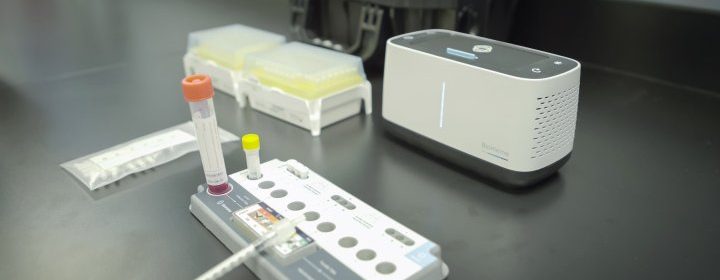Health Canada approves first Canadian-made rapid COVID-19 test

Health Canada has approved the first Canadian-made rapid COVID-19 test, and it comes from a fairly new company in Guelph, Ont.
Precision Biomonitoring says its Triplelock test strips have been developed and manufactured in southern Ontario and received approval from the federal regulator this week.
Until now, all rapid testing systems in Canada have been imported from other countries.
“Our test is an all-Canadian test,” Precision Biomonitoring CEO Dr. Mario Thomas said in a phone interview. “It’s an immense sense of pride to make a contribution.”
The company says its system can provide accurate results on-site for nine nasal swab samples in just 60 minutes. This is ideal for remote work sites such as mining and Indigenous communities.
Thomas said some communities are forced to ship swabs to cities and in some cases, it can take up to 10 days to get results. His company’s test eliminates all of that.
“The testing is done on-site. We have battery-operated instruments and it can be set up basically anywhere,” he said.
Precision Biomonitoring was founded in 2016 by a team of scientists from the University of Guelph’s Biodiversity Institute of Ontario.
[ Sign up for our Health IQ newsletter for the latest coronavirus updates ]
They had already developed equipment to detect other pathogens, with the focus on food and water safety. That all changed in February when they shifted their focus to testing for COVID-19 with the same equipment.
“Our experience, our four years of experience, in food safety and environmental monitoring gave us the springboard to switch to COVID-19 literally overnight,” Thomas said.
Precision Biomonitoring, which has been importing foreign rapid COVID-19 tests and deployed them across Canada, says it has 52 organizations that will soon be using the Canadian-made product.
Health Canada only started to approve rapid COVID-19 tests in early October, but several tests have been greenlit since.
Colin Furness, an infection control epidemiologist and assistant professor at the University of Toronto, said these types of rapid tests will “help a lot.”
He said it will help clear some of the backlog in laboratories, and it will allow for testing to occur in more places, making it more accessible for Canadians.
“We’ll be able to reach more people and do more tests,” he said. “So it’s really great.”
— With files from Global News’ Hannah Jackson
Source: Read Full Article